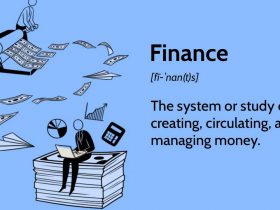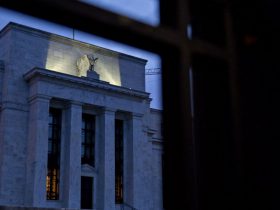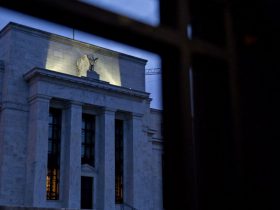Fairness markets have gone up so rapidly that they are extremely weak to a pullback if the U.S. financial system slips into even a gentle recession, in response to Royal Financial institution of Canada’s fund administration arm.
The percentages of such a downturn are nonetheless about 70%, says the chief economist of RBC World Asset Administration, regardless of increasingly-frequent predictions of a tender touchdown. These calls are based mostly on information that present inflation is cooling, suggesting the Federal Reserve and different central banks will quickly be capable to decrease rates of interest even because the financial system continues to broaden.?
Charge cuts are more likely to occur in 2024, however the world financial system hasn’t but absorbed the complete affect of just about two years of tightening financial coverage, RBC economist Eric Lascelles stated in an interview. Traditionally, the common time between the primary U.S. fee hike and the onset of recession is about 27 months, Lascelles writes within the agency’s new funding outlook.
The Fed and the Financial institution of Canada first raised charges in March 2022, whereas the European Central Financial institution started that July.?
“The danger of recession has gone down modestly, however the market’s pricing suggests it is gone down remarkably,” Lascelles stated. The S&P 500 is poised to finish the 12 months up about 25% after a shocking 14% rise because the starting of November. ?
“What’s baked into the cake is a large bounce in earnings, which is de facto solely achievable in a soft-landing situation,” Lascelles stated.
Many economists imagine the U.S. financial system is much less rate-sensitive than the U.Ok., Canada and different international locations the place shoppers are already coping with larger mortgage funds as a result of their mortgage charges reset extra steadily. However there is a flip facet to the U.S. construction of long-term mortgages: tighter credit score from hard-hit monetary establishments, Lascelles famous.
“For each 30-year mortgage holder within the U.S. who’s form of cackling at their 2.6% mortgage and so they’ve bought no drawback till 2052, there’s a monetary establishment that lent them that cash at 2.6% that is feeling some stress right here,” he stated.?
Even when thousands and thousands of American households have locked in comparatively low mortgage charges, “any choice to purchase a brand new automobile or to purchase a brand new residence or to construct that new residence or to construct that new manufacturing unit ¡ª these are all fully uncovered to larger charges. The U.S. isn’t any extra protected against that than anybody else.”
The agency’s quarterly funding outlook says inventory valuations look way more affordable outdoors of the megacaps equivalent to Microsoft Corp. and Nvidia Corp. which were the largest drivers of this 12 months’s large features within the S&P 500.?
“The dominating efficiency of U.S. equities for greater than a decade might be ripe for reversal,” RBC’s Eric Savoie and Dan Chornous write.
RBC World, which had about C$540 billion ($408 billion) beneath administration as of Oct. 31, is coming into the brand new 12 months with a impartial positioning on shares and has raised its really helpful allocation to fastened earnings to 38.5%. That is up from 37% at the beginning this 12 months, as larger yields have made bonds extra enticing.?














Leave a Reply